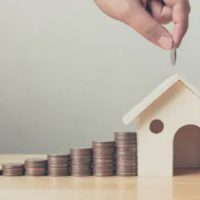Will You Lose Investment Property in Bankruptcy?

Many Floridians own investment properties, such as apartment buildings or business complexes. Other people have an extra home that they purchased or inherited that they might rent to people. Are you at risk of losing these properties if you file for bankruptcy protection?
The short answer is “yes.” You absolutely could lose investment property if you file for bankruptcy, but there are many factors at play. Meet with a Plantation bankruptcy attorney for help identifying whether you should file.
Can the Homestead Exemption Protect My Investment Property?
No, and the reason why is included in the phrase “homestead exemption.” This exemption protects only your home, i.e., the residence where you live. It will not protect an apartment building or a rental home. It also won’t protect the home you inherited from your mother (unless you now live in it). So if you have an extra home, you should reconsider whether you want to file for bankruptcy.
Can a Bankruptcy Stop a Foreclosure?
Temporarily. Some people file bankruptcy quickly to stop a foreclosure action. The bankruptcy code has an automatic stay that immediately goes into effect when a person files for bankruptcy. This stay blocks any attempt by a creditor to recover on a debt.
So if your investment property is headed to foreclosure and you want to stop a sale, you can file for bankruptcy. However, a creditor can always ask the bankruptcy judge to lift the stay so it can go ahead and foreclose, and many judges will grant such a request. Filing for bankruptcy, then, might only be a temporary reprieve.
Can You Save Investment Property with Bankruptcy?
It is possible. You can avoid losing any property by filing for Chapter 13 bankruptcy. It is less known compared to Chapter 7. In a Chapter 13, you come up with a payment plan that runs 3-5 years. You go through your budget and identify how much disposable income you have to contribute to your creditors, and you stick to a repayment schedule. At the end of your payment period, unpaid debts that qualify for discharge get wiped out.
Chapter 13 takes much longer than a Chapter 7. Some people struggle to stick to a payment plan that lasts several years. Some people also end up paying more to their creditors over the life of a Chapter 13 than they would with a Chapter 7. However, this bankruptcy can save your investment property from being sold for your creditors’ benefit.
Nevertheless, it might not be worth your time to try and save the property, which is another consideration you should discuss with a lawyer. You will need to include the profits from any rental property when calculating how much you must pay back to creditors. In the end, it might be worthwhile to just lose the property. Before rushing out and filing for Chapter 13 protections, speak to an attorney
Contact Nowack & Olson Today
We are a leading Plantation bankruptcy law firm, and we are available to help you think through your options. To start the process, please contact us by calling 888-813-4737 or submit an online message.
https://www.floridabankruptcynow.com/good-news-on-the-consumer-credit-front/
